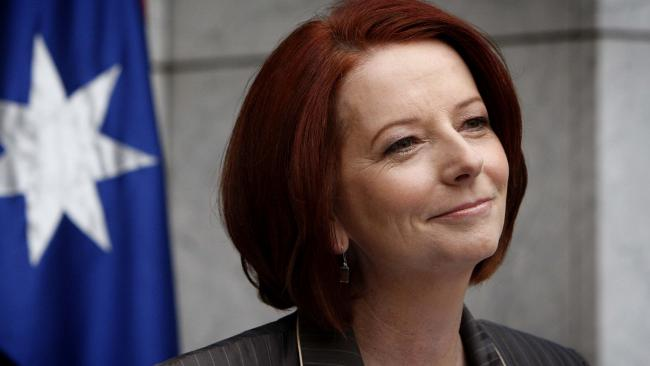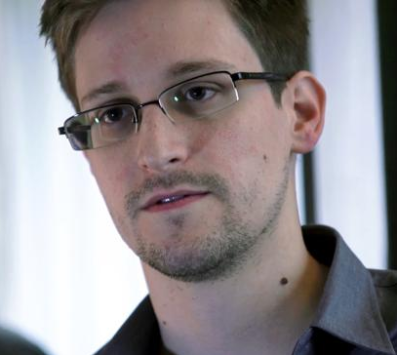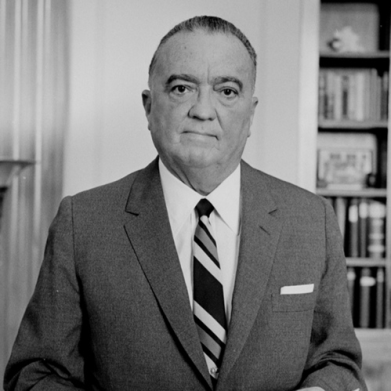
Tomorrow begins the final week of the current session of the Australian federal Parliament. After that there will be a period of election campaigning before the federal election scheduled for September. At this point in time, the likely winner of the election will be the Liberal Party/National Party conservative coalition, led by Opposition Leader Tony Abbott.
The incumbent Prime Minister, Julia Gillard, and her Australian Labor Party are living on borrowed time. They actually “lost” the last federal election, not gaining enough seats in Parliament’s lower house to form a government themselves. Gillard formed a minority government with support from a minor Party (one member) and three independent (non-aligned) members, which grew to four after a Labor MP caught in a scandal left the Party.
In effect, it’s a miracle that Gillard has driven the bus this far, with the fuel tank indicator needle hovering on empty. Now the bus is going to coast over the cliff that has been waiting for it from the beginning of its journey.
There are some people in the Labor Party who believe another outcome may be possible. These are the supporters of Kevin Rudd, the Labor PM elected in 2007, who was deposed by Gillard on the ostensible basis that Rudd was polling badly and was going to lose the 2010 election, but also because Rudd, alleged to be a petulant micro-manager, had alienated quite a few of his parliamentary colleagues.
Ever since then, Rudd has sat in the background as a kind of failed messiah, with a coterie of loyal supporters. Rudd convinced Labor elder Simon Crean – who tried to engineer a spill of the Prime Minister’s position a couple of months ago – that he has repented of his prickly management style, and that he is able to return to his former role and lead Labor out of danger at this year’s elections. One thing that cannot be disputed is that Rudd is very popular with the public, and Gillard is not. Gillard is very astute at parliamentary “insider politics”, Rudd had not been so astute. it would be good if they could work together. That time has come and gone.

What would happen if Rudd thought he had the numbers, and challenged Gillard? Either he would lose, and the still-divided Party would limp to an election disaster of historical proportions with an unpopular leader (Gillard). Or, he would win, there would be a bloodbath with Gillard’s Ministers resigning or being chopped, and Rudd’s followers being promoted in their place. Without the platform of Parliamentary debate to give them an opportunity to shine, the new team would need to use the media to convince the voters that the new management was serious about taking the country in a better direction.
Most media commentators describe Rudd as a long shot at winning the election of even retaining the same number of ALP seats as at present. He is described as someone who could “save the furniture” rather than stop the house from burning down, that is, the ALP’s best hope for retaining enough seats to make a comeback in one or perhaps two future elections, rather than being out of contention for three, which would probably require an alliance or merger with the smaller Greens Party.

Assuming the ALP lose, either very badly, with Gillard as leader, or not so badly, with Rudd (or someone else) as leader, what would a new conservative Abbott government do? It would pursue a neoliberal economic agenda.
According to the Investopedia website, this is the definition of Neoliberalism:
Definition of ‘Neoliberalism’
An approach to economics and social studies in which control of economic factors is shifted from the public sector to the private sector. Drawing upon principles of neoclassical economics, neoliberalism suggests that governments reduce deficit spending, limit subsidies, reform tax law to broaden the tax base, remove fixed exchange rates, open up markets to trade by limiting protectionism, privatize state-run businesses, allow private property and back deregulation.
The Lib/Nat agenda will involve shrinking the public sector – except defence, which will be boosted – by cutting back on the public service, selling government assets, and reducing or freezing welfare benefits. Tax cuts would be implemented if that were possible, but it probably won’t be for some time.
Sounds familiar, doesn’t it? Ever since Margaret Thatcher (who really did shrink government) and Ronald Reagan (who talked about it, but didn’t, but who deregulated banking and other industries), this menu of “neoliberal” political actions has been seen as the gold standard by Australian conservative politicians at both national and State/Territory levels.

Now, I am going to say something that might seem a bit outrageous to some people. As a political plan of action, as distinct from an economic theory, I think neoliberalism is misconceived. Why? Because it sees the government/public sector and the commercial/private sector as antagonistic to each other. Go back and look at the definition quoted above. It refers to shifting control of economic factors from the government to the private sector, hence Reagan’s deregulation of banking, which many commentators blame for breeding the uncontrolled risk-taking that led to the GFC and multiple bank failures in the US.
Neoliberal political action plans are misconceived because the government’s role is to govern, not to let other people do that job.
Australia has many examples of successful interactions between the government and private sectors. One example is the State government of Victoria giving land to private developers to turn into apartment complexes on the proviso that some of the apartments were returned to the government for public housing. Another example is the State government of Western Australia doing a deal with energy companies to supply natural gas to the domestic market at a lower price than the gas could fetch on the international market. The gas, like any mineral resource, was a public asset in the first instance.
These are pragmatic, home-grown Australian solutions to problems that arise in all countries. Unfortunately, instead of continuing in this tradition of pragmatism, the aspiring Thatcherites in a new Abbott conservative government are likely to unleash a wave of neoliberal “reforms” predicated on the flawed premise that the best way to govern a country is for the government to withdraw from the scene. That is, unless Mr Abbott has the courage to resist the neoliberal ideologues in his camp and do what he will be elected to do: govern Australia.


